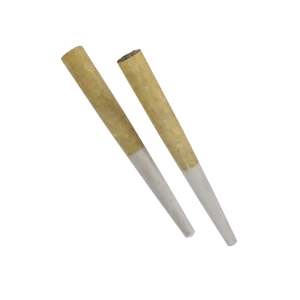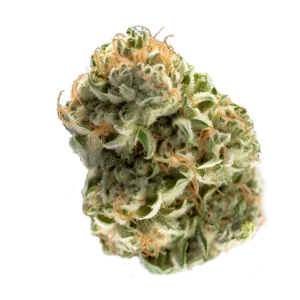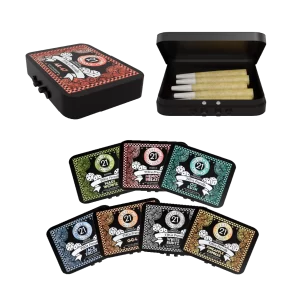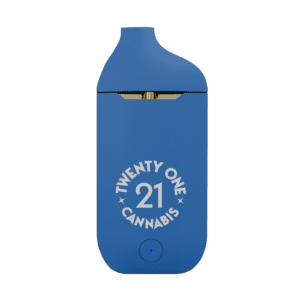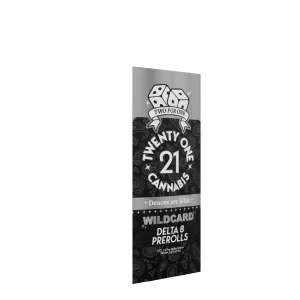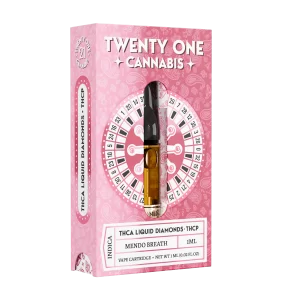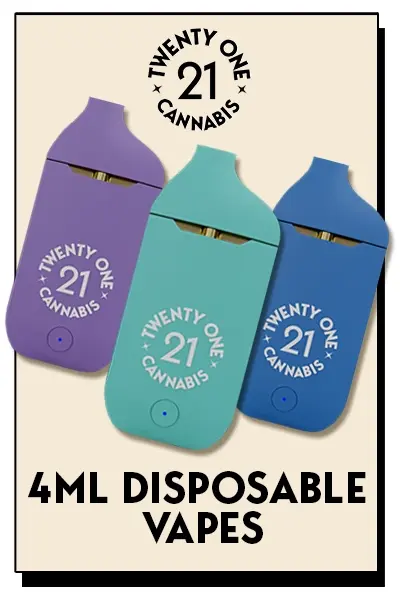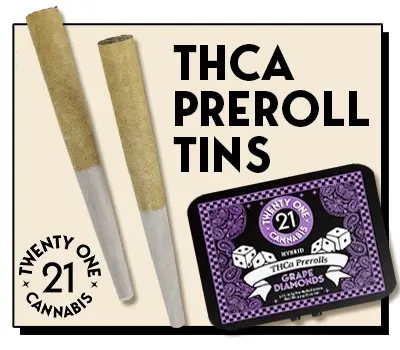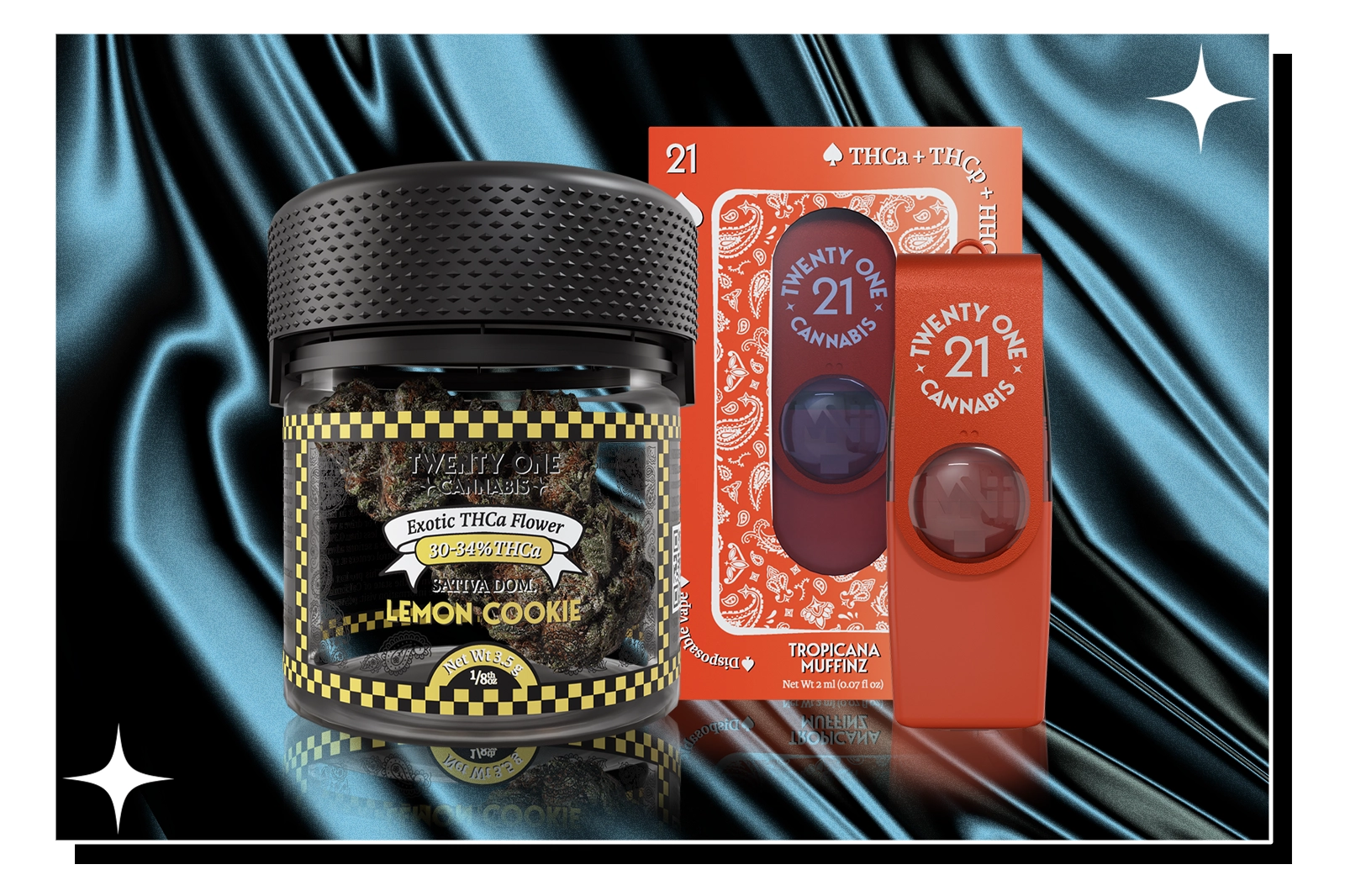
THCA vs THCP
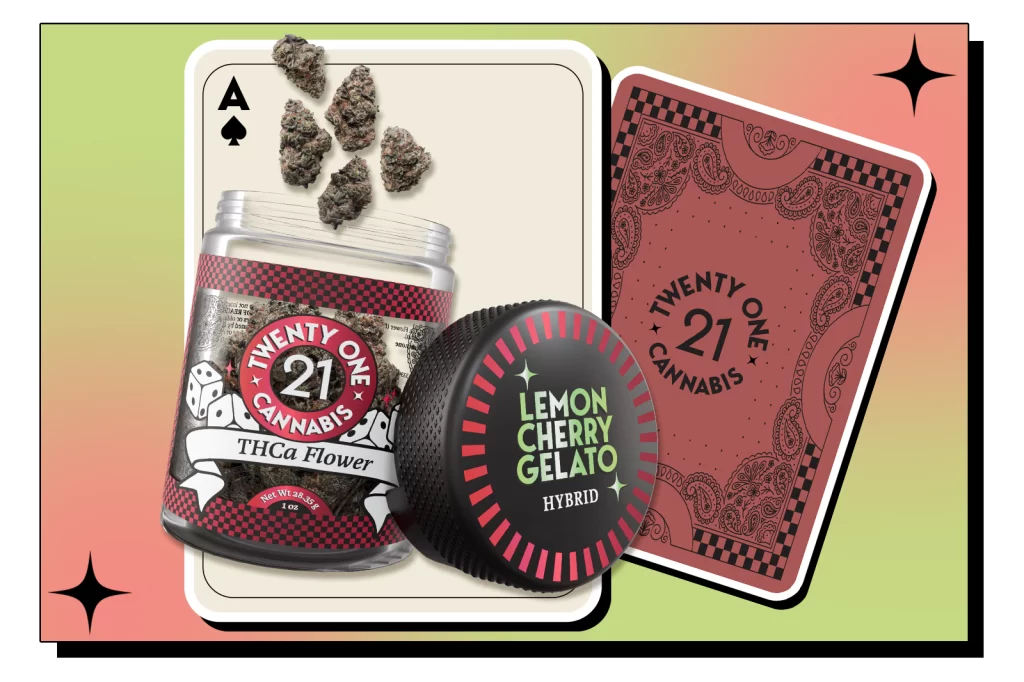
In this Article
The High Rollers Source for THCa Delta 8 HHC
Most cannabis users are all too familiar with the two major cannabinoids, THC and CBD. However, there are dozens of minor cannabinoids and phytocannabinoids that are also worth investigating, both due to their effects and their therapeutic potential.
Two such cannabinoids are THCA and THCP, with the former being non-psychoactive and the latter being one of the most psychoactive and intoxicating cannabinoids of all.
Today, we’re doing a THCA vs THCP comparison to provide you with all the information you need to make an informed decision between them. So, what’s the difference between THCA and THCP?
Article Highlights
-
- THCA and THCP are both minor cannabinoids found in cannabis plants.
-
- THCP is highly potent and psychoactive, whereas THCA does not get you high. THCA needs to be decarboxylated to be activated and, when done so, turns into Delta-9 THC.
-
- THCA and THCP feature different chemical structures, which leads to differences in potency, effects, and therapeutic potential.
-
- Both THCP and THCA have many potential benefits, with appetite stimulation, anti-inflammation, acting as sleep aids, and analgesics being just some of them.
21 Cannabis is your go-to source for the best legal hemp and cannabinoid products out there. Check out the awesome selection of THCA products, like this tasty AK-47 THCA Pre-Roll.
What is THCA?
THCA or Tetrahydrocannabinolic acid is a cannabinoid found in live cannabis that has not yet been decarboxylated. THCA in itself is not psychoactive, which means that will not get you high or cause any intoxicating effects. It’s not something you would consume to get high, at least not in its raw and unprocessed state.
However, THCA is the acidic precursor to THC, which means that through a process known as decarboxylation, THCA converts into THC, specifically Delta-9 THC, which is psychoactive.
THCA is present in raw cannabis flowers, usually in concentrations up to 30%, and only through the decarboxylation process does it turn into psychoactive THC. This is why raw cannabis, if ingested, will not get you high because the THCA has not yet been activated. Due to its chemical structure, it has a weak binding affinity with CB1 receptors.
In terms of its chemical structure, THCA contains a pentyl chain along with a carboxylic acid group. When decarboxylation occurs, that additional carboxylic acid group is dropped, effectively turning it into THC. Interestingly enough, THCA itself is created from CBGA or cannabigerolic acid, which many refer to as the mother of all cannabinoids.
Benefits and Uses of THCA
Here are some of the potential benefits you can expect from products containing THCA.
Neuroprotective Potential
According to current research, THCA can potentially act as a neuroprotective agent. This means that it may be able to shield brain cells from free radical-induced damage. This is attributed to the antioxidant properties of THCA.
Due to the protection it may provide your brain cells, THCA shows potential for preventing and treating various neurodegenerative conditions. THCA also shows potential to support brain cell health by activating the PPARγ receptor, which is important for neuroprotection.
Anti-Inflammatory
Recent studies show that THCA may have anti-inflammatory effects that function through several pathways. Although THCA does not bind with cannabinoid receptors directly, it works through other pathways not associated with cannabinoid receptors.
It is believed that THCA inhibits some of the crucial enzymes involved in inflammation, as well as signaling pathways, mainly COX-1 and COX-2, which both play a role in inflammation. By obstructing these enzymes, THCA can potentially reduce inflammatory agents in the body.
Stimulates Appetite
THC is often considered ideal for stimulating the appetite and reducing nausea, but the same can also be said for its acidic precursor, THCA. Although exactly how THCA suppresses nausea is not fully understood, the idea here is that it may influence serotonin levels in the brain, which can have an impact on nausea.
In terms of hunger, THCA can potentially increase the amount of ghrelin in the body, a hormone responsible for causing hunger and stimulating appetite. This shows potential for people suffering from chronic nausea.
Ways to Consume THCA
There are several ways to consume THCA. However, it’s important to remember that THCA has to be kept off heat if you’re really looking to consume THCA. If you decarb it, which means heating it, you’ll convert the THCA into THC, which will make it psychoactive and no longer produce the same benefits.
Here’s how you can consume raw THCA.
-
- Eat raw cannabis for the best results. You can juice the buds and add them into smoothies, so long as the buds aren’t exposed to heat.
-
- By soaking raw cannabis flowers in high-proof alcohol, it is possible to make a potent tincture without converting the THCA into THC. This can be used sublingually or simply consumed.
-
- Due to THCA’s potential anti-inflammatory benefits, you can use it topically in the form of a lotion or cream, which may offer relief from inflammatory skin conditions.
Some of the most common THCA products on the market right now include THCa flower (like this Lemon Cookie strain), THCa pre-rolls (such as these Lemon AK and Gorilla Freeze pre-rolls), as well as liquid diamonds (like these White Runtz liquid diamonds). It is also possible to find THCA in tinctures and edibles.
What is THCP?
We then have THCP or tetrahydrocannabiphorol, a phytocannabinoid discovered just a few years ago in 2019. A group of Italian scientists were investigating the FM2 medical cannabis strain using chromatography and mass spectrometry, and these techniques allowed for the discovery of the THCP cannabinoid.
Although THCP is similar in chemical structure to regular THC, it has one key difference: a longer alkyl side chain. Whereas THC has a pentyl side chain (5), THCP features a seven-term side chain, two more than THC.
This difference in molecular structure is thought to be responsible for its increased ability to bind with CB1 receptors. The result of this is that THCP is much more potent than THC, up to 33 times more potent, and yes, it is psychoactive.
Although THCP is very potent, it generally doesn’t occur in large quantities, which is why extracting it from cannabis flower is not feasible. Instead, it is most often synthesized from hemp-derived CBD, a factor which should also help to keep it legal at a federal level.
Potency and Effects of THCP
As mentioned above, THCP is one of the most potent cannabinoids in the market. Its effects may be similar to those of THC in terms of the high it produces, just much more intense. You can expect all of the regular effects, just like when you smoke Delta-9 THC, including both a cerebral and a body high.
However, due to its much higher potency, you can expect THCP’s high to be much stronger. It hits harder, it hits faster, and the mental and cerebral effects are very strong. It’s best known for its intense euphoria.
Potential Benefits of THCP
There are a few potential benefits that THCP may offer. However, it’s important to remember that most of these are purely anecdotal. THCP research is still in its infancy, so we recommend that you take these benefits with a grain of salt.
Potential Pain Relief
THCP has the potential to relieve pain by acting as an analgesic. This means that through its interaction with the CB1 receptors, it can potentially affect pain perception, specifically by blocking pain signals from reaching the brain. Due to its higher affinity to bind with CB1 receptors, THCP may have more significant pain-killing potential than THC.
Stimulating Appetite
Although more research is required, it is believed that THCP, just like THC, may also stimulate the appetite by affecting the production of hunger hormones.
Sleep Aid
THCP may also act as a sedative and sleep aid. Likely, the reason why THCP makes you tired is due to how it interacts with the CB1 receptors, and, in turn, causes a variety of sleep-affecting neurotransmitters to be released.
Potential Side Effects of THCP
Due to the high level of potency THCP features, it also comes with a risk of certain side effects, including the following:
-
- Paranoia
-
- Anxiety
-
- Cognitive and motor skills impairment
-
- Dry mouth
-
- Red eyes
-
- Tiredness
However, if you’re a reasonably experienced cannabis user and consume THCP in sensible dosages, you will most likely be able to avoid all of these side effects.
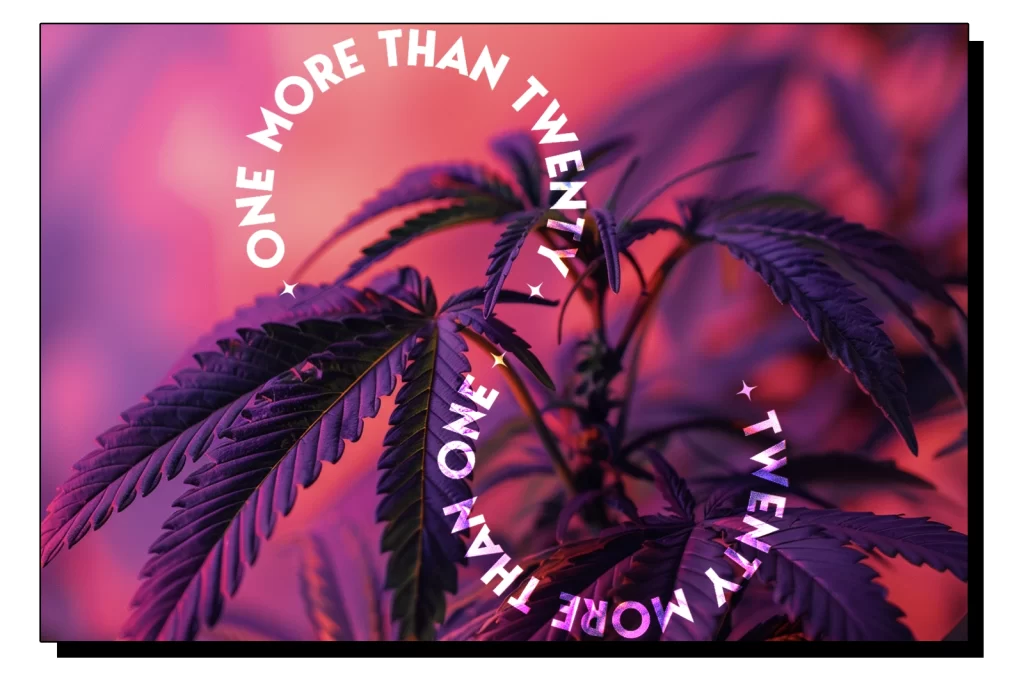
THCP vs THCA Isomers
Now that we know the basics about both of these cannabinoids, let’s try to determine whether THCP or THCA is better for you.
Chemical Structures Compared
THCA has a five-carbon side chain, whereas THCP has a seven-carbon side chain, which, once again, is why it is so much more potent.
Furthermore, unlike THCP, THCA also has an additional carboxylic acid group. The result of this chemical structure is that THCP is highly potent and intoxicating due to its high binding affinity with CB1 receptors, whereas THCA really doesn’t bind with these receptors at all, resulting in some major differences, namely psychoactivity.
Is THCA Stronger Than THCP?
Asking which of these is stronger is somewhat of a subjective question because by strength, most people are referring to potency. Keep in mind that THCA is not psychoactive or intoxicating in any way, at least not until it has been decarboxylated.
Therefore, raw THCA could be said to be not potent at all. On the other hand, seeing as THCP does produce a psychoactive high, an even stronger high than regular Delta-9 THC, it is said to be extremely potent.
Technically speaking, THCP is the more potent of the two, which is even the case if the THCA is decarboxylated and turned into Delta-9 THC. THCA may have more potential therapeutic benefits than we know about, but it’s THCP that will get you high.
Therapeutic Benefits: Which is Better?
Which one of these two cannabinoids is better in terms of therapeutic potential depends on what our needs are.
Based on the evidence provided above, we can say that THCA is best for attempting to treat issues such as inflammation and neurodegenerative diseases.
THCP, on the other hand, is better for relieving pain and acting as a strong sleep aid. While both may stimulate hunger and reduce nausea, which works better on this front remains to be seen.
THCA or THCP: Which One is Safer?
More research is required to assess the safety of THCP properly, although no serious or life-threatening side effects have been noted at this time, as is the case for THCA.
THCP, due to its potency, comes with a risk of paranoia and anxiety, something that THCA does not come with. Due to its lower or non-existent potency, THCA is often considered the safer of the two. However, caution is recommended with both, and below are some tips to help get you started.
-
- Particularly with THCP, start very slowly, with just a few milligrams if possible.
-
- Before starting any new cannabinoid, especially if you are using it in an attempt to treat medical conditions, always consult a healthcare professional first.
-
- It’s always best to purchase your products from reputable sources who can guarantee a certain amount of quality and safety.
Final Thoughts
THCA and THCP both have great potential in their own respective benefits. THCA doesn’t get you high, but has plenty of therapeutic potential, and while THCP requires further research to understand its therapeutic potential fully, it’s undoubtedly potent and packs one heck of a punch.
If you’re looking for some of the best THCA products around, look no further than 21 Cannabis. We have a vast selection to choose from, including pre-rolls like Gelato Cake and Pineapple Express, fresh flowers like Apple Fritter, and even THCA OG Kush liquid diamonds.
THCP vs THCA: Frequently Asked Questions
What’s the Difference Between THCA and THCP?
THCA is non-psychoactive, and THCP is, which means that the former should not get you high, whereas the latter does. For effects, you can expect the same results from both, more or less. However, the severity of the effects will be different due to THCP’s high potency.
How Do THCA and THCP Relate to Other Cannabinoids Like THC and CBD?
THCA is the precursor to THC and only turns into THC through decarboxylation. Although in its raw form, THCA’s effects closely resemble that of CBD, which is mildly intoxicating or not intoxicating at all. THCP, on the other hand, is intoxicating, more so than regular THC.
What Are Some Potential Benefits of Consuming THCA and THCP?
Some potential benefits of consuming THCA and THCP include pain and inflammation relief, help with sleep, nausea relief, appetite stimulation, and even anti-proliferative effects.
Are There Any Risks Associated With Consuming THCA and THCP?
Some of the risks associated with consuming THCP include paranoia and anxiety. Because THCA is not psychoactive, it is not known to have any serious risks. That said, smoking is always bad for your respiratory tract, so if you smoke either of these cannabinoids, you run the risk of developing lung disease.
Where Can I Find Reliable and Safe Products Containing THCA and THCP?
If you’re looking for the safest and most reliable cannabinoid products available online, look no further than 21 Cannabis.
Sources for this Article
-
- cannabissciencetech.com/view/the-case-for-thca-and-other-minor-cannabinoids
-
- ncbi.nlm.nih.gov/pmc/articles/PMC5549281/
-
- ncbi.nlm.nih.gov/pmc/articles/PMC5510775/
-
- ncbi.nlm.nih.gov/pmc/articles/PMC10095267/
-
- mdpi.com/1422-0067/24/7/6827
-
- ncbi.nlm.nih.gov/pmc/articles/PMC5731255/
-
- frontiersin.org/journals/pharmacology/articles/10.3389/fphar.2022.908198/full
-
- ncbi.nlm.nih.gov/pmc/articles/PMC5549534/
-
- sciencedirect.com/science/article/abs/pii/S0006295219303922
-
- ncbi.nlm.nih.gov/pmc/articles/PMC3792001/
-
- inverse.com/article/47120-smoking-marijuana-hunger-munchies-ghrelin
-
- sciencedirect.com/topics/pharmacology-toxicology-and-pharmaceutical-science/tetrahydrocannabinolic-acid
-
- ncbi.nlm.nih.gov/pmc/articles/PMC6937300/
-
- researchgate.net/publication/372967904_The_Analgesic_Effects_of_Cannabis
-
- sleepfoundation.org/sleep-aids/cannabis-and-sleep
- sleepfoundation.org/sleep-aids/cannabis-and-sleep
-
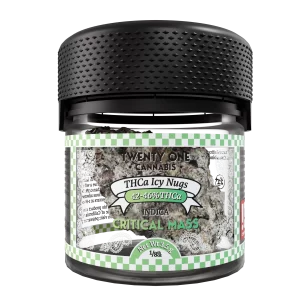
THCa Flower – Icy Nugs 3.5g – Critical Mass (Indica)
$49.99 -

THCa Flower – Icy Nugs 3.5g – Purple Gelato (Hybrid)
$49.99 -
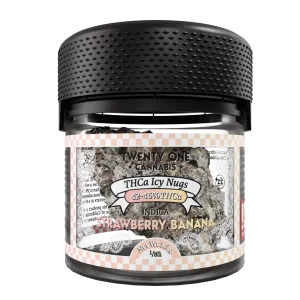
THCa Flower – Icy Nugs 3.5g – Strawberry Banana (Indica)
$49.99 -
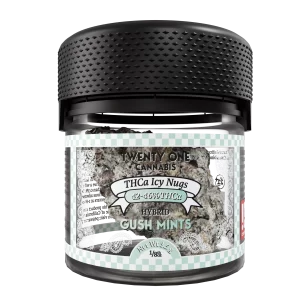
THCa Flower – Icy Nugs 3.5g – Gush Mints (Hybrid)
$49.99 -
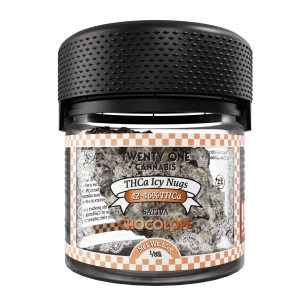
THCa Flower – Icy Nugs 3.5g – Chocolope (Sativa)
$49.99 -
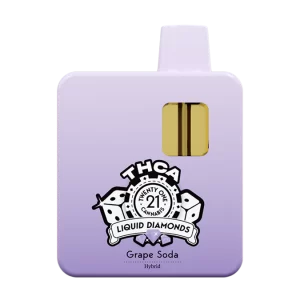
Grape Soda 3ML THCa Diamonds Disposable Vape
$44.99
In this Article
Let's be social
More Heavy Hitting Posts

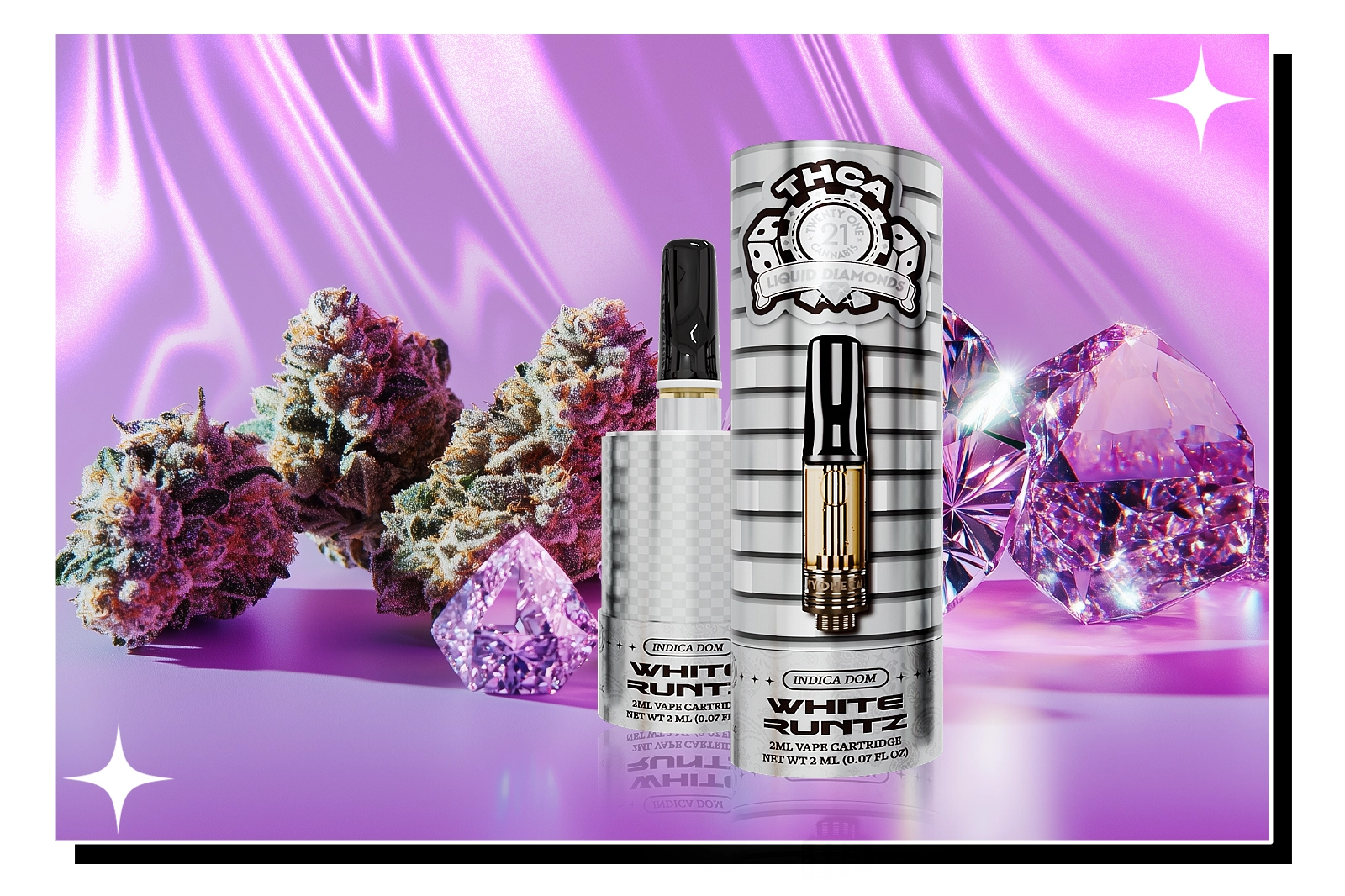
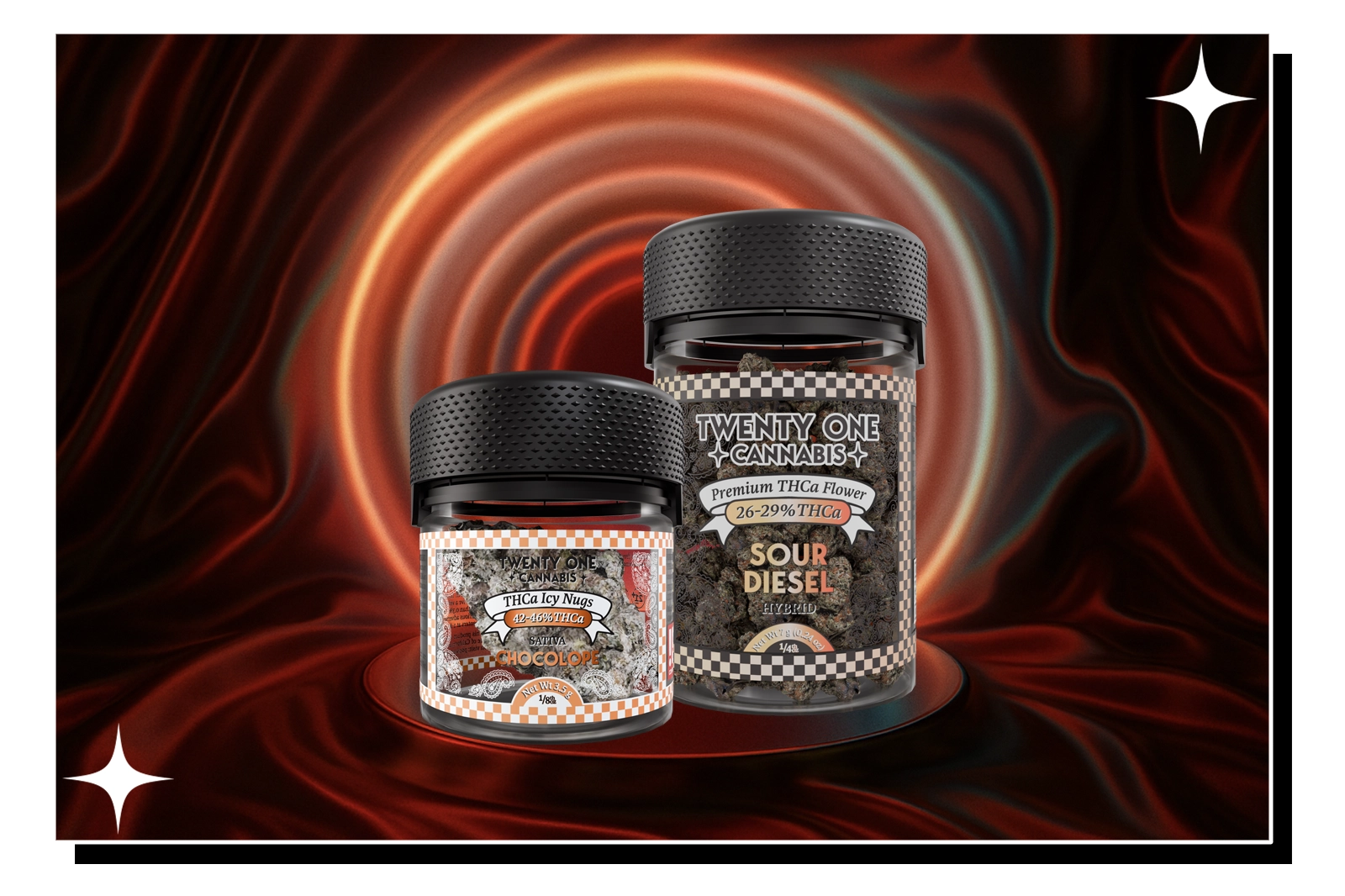
Cannabis for Focus: Strains That Keep You Dialed In
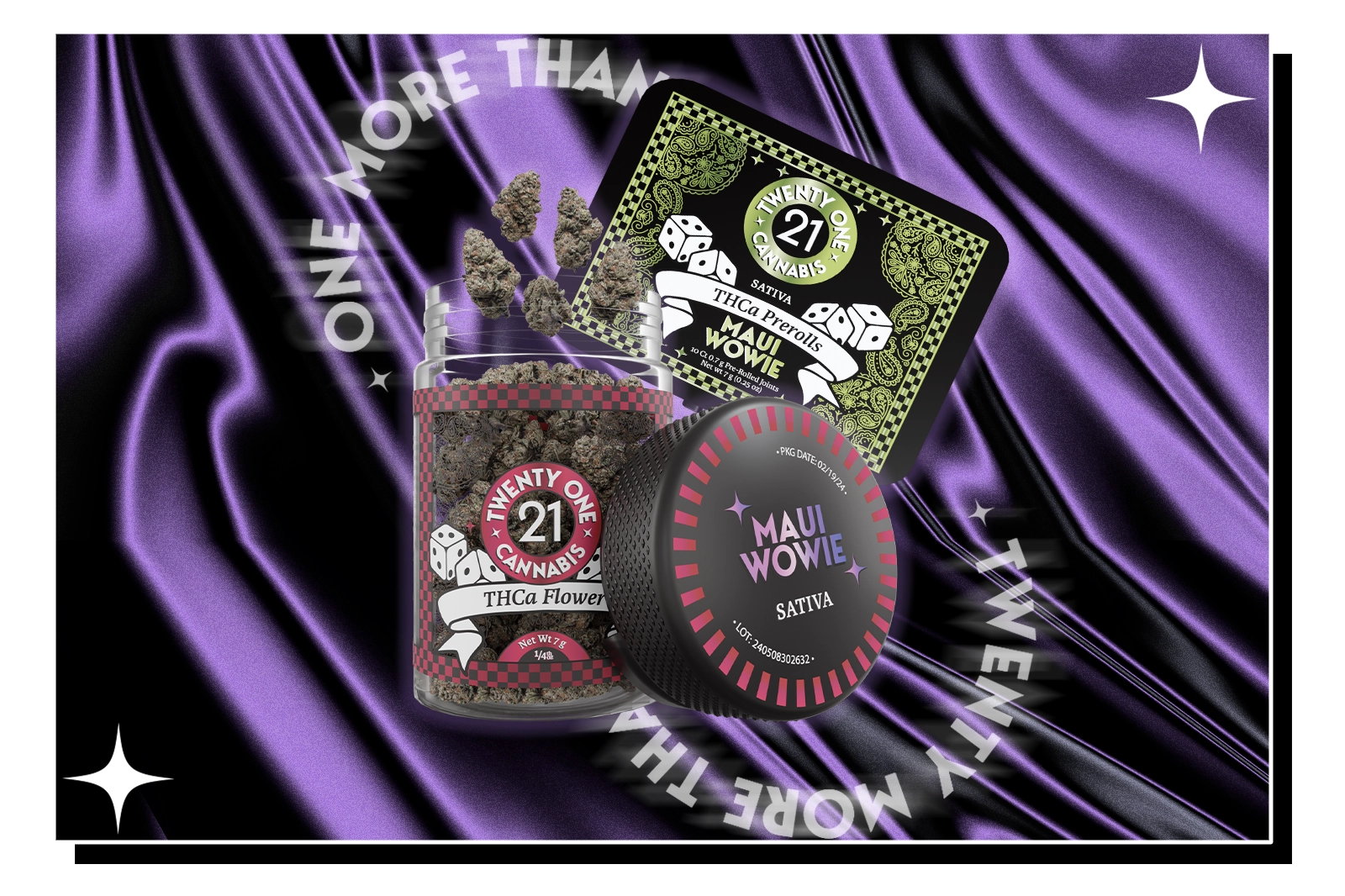
Maui Wowie Strain Review: A Tropical Sativa Paradise
JOIN THE HIGH ROLLERS
Categories
Fabian Raemy

Peer Review by: JJ Coombs
Doctor of Pharmacy, Pharmaceutical Sciences University of Colorado
Co-Founder & CEO at Arvida Labs

